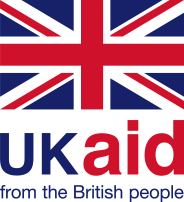WSP Global, implementor of the UKaid सीप Programme, recently released its 2020 Global Environmental, Social and Governance (ESG) report that also featured its projects in Nepal. Through UKaid सीप, Sakchyam-Access to Finance Programme, and other projects, WSP, since 2014, has helped mobilize and expedite investments and partnerships in Nepal that have enhanced access to quality skills training, inclusive financing solutions, and decent reliable jobs. Through सीप, WSP is contributing to several SDGs. The ESG report outlines WSP’s efforts to build a more sustainable and resilient world in over 100 countries where it operates: www.wsp.com/en-GL/investors/reports-and-filings/esg-report
Enabling Green, Resilient, and Inclusive Development
Environmental protection is a key feature that WSP/UKaid सीप also shares with its challenge fund partners. “Since 2019, we’ve worked with Label STEP to decentralise Nepal’s carpet industry, taking national and global value chain-linked weaving workshops to Province 2, expanding skilling and fair-trade based jobs and production processes, including support for mills to achieve ecologically sound production,” said Stuti Basnyet, Deputy Team Leader, UKaid सीप. Label STEP does this by introducing methods to reduce water and energy use, the treatment of water waste, reducing the use of hazardous ingredients and implementing proper air filtration systems.
Similarly, pursuit of ‘green actions’, encouraged by सीप, has been an imperative tool for Upaya: CityCargo. With much-needed tax relaxations introduced by the government for green vehicles this year, Upaya is moving forward its conversations with two-wheeler electric vehicle companies Eco Infinity and Thee Go to incentivise increased adoption of green transportation modes.
Post-Covid-19, Green, Inclusive, Resilient Development (GRID) has been amplified as a priority for the UK Government, and the development community more broadly, as an essential approach to accelerate Nepal’s economic recovery and growth. This entails short, medium, and long-term approaches to trigger and contribute to investments in green and inclusive jobs, while maintaining natural capital and promoting inclusion. With parts of Nepal seasonally inundated with heavy rainfalls and floods, and marred by landslides, it is clear that business-as-usual approach by the construction industry can have catastrophic consequences. The hundreds of heavy equipment operators navigating Nepal’s complex geographic terrain should better protect Nepal’s fragile terrain as they go about their jobs. Through partner MEPL, we have initiated conversations for integration of environment-conscious skilling in the curricula and training approach for heavy equipment operators and mechanics. Through scenario analysis and other green-action tools, UKaid सीप aspires to help the private sector understand risks and opportunities and identify appropriate actions—to enable adoption and integration as part of their broader skilling, employment creation, and industry growth agendas.
In Nepal, सीप is working towards harnessing WSP’s global expertise to deepen its green growth engagements with key actors across our five priority sectors—agriculture, construction, tourism, ICT, and manufacturing. We are systematically exploring and informing private sector actions to better integrate climate-smart initiatives that protect and build resilience to various threats that arise from climate change, natural disasters, and other risks.


